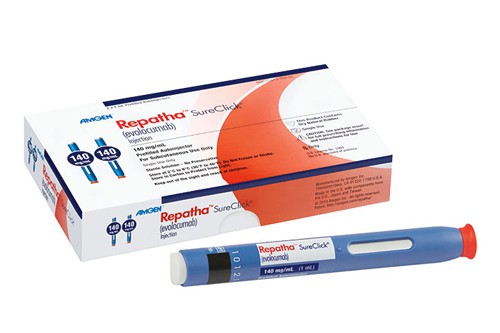
The UK government has unveiled an upgrade to its Accelerated Access Collaborative (ACC) initiative, aimed at creating a single ‘front door’ into the NHS for health innovation.
The new measures have been announced to coincide with today’s annual conference of the ABPI, the UK pharma industry association, and aim to make it easier for new health innovation to be taken up by the NHS.
The ACC, first set up last year, will undergo a significant upgrade to its capabilities, and will now transfer to a dedicated unit to be headed up by Dr Sam Roberts, NHS England’s director of innovation and life sciences.
Announcing the new initiative at the conference this morning, health minister Nicola Blackwood said:
“I want the NHS to be at the forefront of cutting-edge treatments and medical innovations – but often it can take too long for products to get from the bench to the bedside.”
The minister promised that the ACC will speed up this process, so “patients and England’s health service can be the first in the world” to benefit from the most transformative technologies and treatments as part of the NHS Long Term Plan.
Despite this ambitious rhetoric, the government hasn’t announced any new money to accompany the upgrade. In its original incarnation, the ACC had a budget of just £2m to fund uptake of new innovations. This is a small sum, especially considering that there were seven ‘high-potential technology areas’ covering 12 products picked for fast-tracking in its inaugural wave, announced last October.
Instead of new funds, the scheme’s focus is more on overcoming barriers to uptake within the NHS and across different localities, which very much still exist, despite national guidance from NICE and other organisations.

Repatha: one of the technologies earmarked for faster uptake last October
Most significantly for pharma, only two of these areas related to medicines: the PCSK9 inhibitors for treatment of primary hypercholesterolaemia and mixed dyslipidaemia, Amgen’s Repatha and Sanofi’s Praluent, as well as Merck’s multiple sclerosis drug Mavenclad.
The government and NHS England have made very clear the outcomes they want to see from the initiative: they say it can improve the lives of around 500,000 patients and save the NHS up to £30m. This savings target reflects the system leader’s determination to wring out benefits from all new innovation uptake, as seen in NHS England’s dealings with pharma.
All told, the ACC will remain far less important to the pharma sector than existing mechanisms, such as the new Voluntary Scheme for pricing and access, and of course NICE appraisals and pricing and access negotiations with NHS England.
The initiative will nonetheless be welcome by the sector, which has endured nearly three years of uncertainty thanks to the protracted Brexit process.
The ACC represents a greater boon for med tech and digital services, many of them being developed by start up companies with fewer resources and experience in how to get their products taken up by the NHS.
The new ACC will:
- implement a system to identify the best new innovations and make sure the NHS is ready to make use of them
- set up a single point of call for innovators working inside or outside the NHS, so they can understand the system and where to go for support
- signal the needs of clinicians and patients, so innovators know which problems they need to solve
- establish a globally leading testing infrastructure, so innovators can generate the evidence they need to get their products into the NHS
- oversee a health innovation funding strategy that ensures public money is focused on the areas of greatest impact for the NHS and patients
- support the NHS to more quickly adopt clinically and cost-effective innovations, to ensure patients get access to the best new treatments and technologies faster than ever before
Lord David Prior, chair of NHS England, said: “Our ambition is very clear: the NHS will be the most innovative health care system in the world with much easier access and much quicker uptake of new and innovative products. This applies to therapeutics, diagnostics, digital devices and our whole supply chain. It is a top priority for the NHS.”
Welcoming the announcement, the ABPI’s chief executive Mike Thompson, said:
‘This is a real step forward in making sure UK patients get the latest breakthrough treatments. It sends a clear message that the UK intends to build an innovation-led economy alongside a more productive, innovation-ready NHS. We fully support Sam Roberts in making this a huge success that will change the lives of patients in the UK.’




